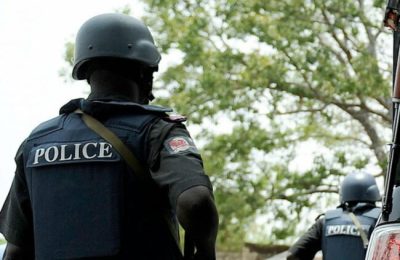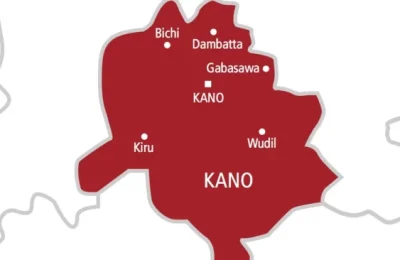

AS Nigerians go to the poll in the next 72 hours, some indices have emerged that might sway the votes, writes KUNLE ODEREMI.
Nigeria is at the threshold of history as it elects a new president and members of the National Assembly 72 hours from now. The election is unique because it marks another process of transition under almost 24 years of uninterrupted civil rule. Huge resources have gone into preparations for the elections with Independent National electoral Commission (INEC) receiving a whopping N335 billion, the highest allocation, in the history of the commission, to execute the national assignment.
With a record of more than 92 Nigerians registered to exercise their franchise on Saturday, there is massive deployment of security personnel totaling 404, 106 cutting across agencies and services. Under the security arrangement for the election, at least two personnel drawn from the security agencies will be deployed to man each of the 176,846 polling units.

Beyond the need to consolidate civil rule in the country is the overwhelming interest of the international community on conduct of the general election. The global attention is underscored by INEC chairman, Professor Mahmood Yakubu that an election in Nigeria was akin to most countries in the West African sub-region combined. “Based on figures compiled from electoral commissions and interior ministries in west Africa, Nigeria’s current voter population is 16.7 million higher than the 76.7 million registered in all the other countries put together—and there are 14 other elections in the sub-region. This means that a general election in Nigeria is like conducting an election in the whole of West Africa and beyond,” he said. And the import of what Yakubu said resonated with the leader of the Commonwealth Observer Mission and former president of South Africa, Thambo Mbeki on the significance of the 2023 elections in Nigeria; that the success of the exercise depends largely on INEC’s chairman and his team.
The highly respected Council on Foreign Relations underscored the strategic place of Nigeria in the comity of nations. This is dependent on its ability to get its act right at the domestic level. “No matter how well the election goes, any newly elected government will have to address this massive challenge to create the kind of democracy that can deliver real results for Nigerians. All this matters to the rest of the world, the stakes are high, not just for Nigerians, but more broadly for the region, where military coups and democratic backsliding have undermined regional governance norms. Nigeria has been internally focused for over a decade, unable and unwilling to wield the kind of decisive regional influence that it did years ago. But Nigeria is inescapably important to the future of the continent. The sheer size of its economy and population, alongside the power and reach of its cultural and creative industries, mean that even with a desultory foreign policy, Nigeria’s trajectory will affect societies far beyond its borders.”
The election is also a critical project for Former President Olusegun Obasanjo. He opines that the integrity of the process was important because the general election could make or break the country. While receiving a delegation of the Christian Association of Nigeria (CAN), he said: “If you stand on the truth, you stand for justice and equity, it is then the politicians will not be able to mess us around and I will say it with all sense of responsibility now, if we do not watch it, the politicians will wreck this country and we all regret it. And where can we look for salvation, that is where you, religious leaders, have a significant role to play. I think it’s the mistake of the past (particularly in Christendom), that we say politics is not for the righteous. Now, if we take the righteous away from politics, and we leave politics to the unrighteous, the unrighteous will smear the righteous with the unrighteousness that they will carry into politics and will have nowhere to go. And in the next election, if we do not watch it, it may make or break Nigeria. And I pray that it will make Nigeria.”


Nigeria’s date with destiny
Some eggheads, among them, Professors Adele Jinadu, Tunde Adeniran, Nuhu O. Yaqub, W. O. Alli, Jibrin Ibrahim, Attahiru M. Jega, Okey Ibeanu, and Marietu Tenuche have also insisted on a global standard practice: integrity. They said the poll should be conducted under the canons of electoral integrity, set out in provisions of the 1999 Constitution of the country, and in African codes and standards on elections, such as the African Charter on Human and Peoples’ Rights,1986, the African Charter on Popular Participation in Development and Transformation, 1990, and the African Charter on Democracy, Elections and Governance,2007.
Power brokers/kingmakers
Many power centres and blocs subsist across the zones. They comprise elites with diverse background, including the military, as well as leading traditional rulers and the stupendously rich. They pull the strings from the background through surrogates in the major political quarters. Having been part of the forces that coalesced to form the leading parties, they have consolidated their hold on the political lever particularly at the centre to preserve the status quo or to achieve a paradigm shift. Watch out for Taraba, Niger, Oyo, Benue, Sokoto, among others.
Governors
The degree of pressure among the governors varies. Those at the tail end of their second term in office are mostly ‘victims’ of seamless intrigues and subterfuge. To guarantee their political relevance beyond the immediate, they are under pressure to win their states for their parties and themselves as some of them are seeking election into the Senate. Those of them having issues with the higher authorities especially within their political parties are involved in the political battle of their lives, as they risk going into oblivion in the event of losing out in the current power struggle and dominance. Majority of APC governors are on the verge of completing their maximum tenure of tweo terms of four years each.
North/South dichotomy
The North-South divide persists in the nation’s political space. Political actors see major contest for power at the centre from the prism of the North-South dichotomy in spite of the creation of the six geopolitical zones in the country. The question about rotational presidency has further armed the promoters of thoughts on cleavages based on the divide. Of course, some opinion moulders from both sides have amplified the issue in the last few days to the poll.
Campaign promises
Attempts to de-market opponents almost drowned the critical substance during the campaigns for the election. Efforts were made by a few of the candidates to showcase and articulate vividly, the contents of their individual manifestoes. Their promises during electioneering should constitute a covenant with voters nay Nigerians as a whole. The state of the economy, the crises in the oil and gas industry, insecurity, unemployment, the real sector, energy supply, among others still formed the crux of the matter as the election beckons.
International community
Nigeria is regarded as the largest democracy in Africa and third in the World after United States and India. Nigeria exerts an enormous influence on the West African sub-region. Its immense human and natural resources confer on Nigeria the status of a key actor in global affairs. However, its ability to play that role with awesomeness has been diminishing and hampered by severe domestic socio-economic and political challenges.
Ethnicity and regionalism
Ethnic politics constitutes part of the primordial factors that will predominate at the poll. Some mass-based regional organizations have accentuated the spirit of ethnic coloration due to the utter disregard for mechanisms designed to institute, nurture and promote sense of belonging and inclusiveness in running the affairs. This has orchestrated the outcry of marginalization over the application of the Federal Character provision in the 1999 Constitution.
Economy and social dislocation
Most Nigerians are in dire strait because of the parlous state of the economy. The current financial squeeze occasioned by naira redesign has compounded the precarious social and economic dislocations across the country. There is pent-up anger with potentiality of having diverse impact on the conduct of the poll. So, there could be a sort of transferred aggression by voters, just as the possibility of creating voter apathy.
Religion
It is another factor that benchmarks elections in the country. It has always informed the choice of candidates at various levels, especially in places with multiplicity of faith. Candidates for the coming elections have engaged in claims and counterclaims of indulging in undue politicization of religion in the weeks of electioneering that is culminating in Saturday election. The acrimony over the issue has almost obliterated the gains of the peace Accord signed by the candidates.
Third Force
Almost every election season after the 1999 political transition programme midwived by the military has been characterized by the phenomenon of a Third Force to challenge the two leading political parties. It become more pronounced when former President Olusegun Obasanjo propped up the African Democratic Congress (ADC) to play that role in the buildup to the 2019 general election. But the project died prematurely due to the factors that undermined a similar project initiated by pro-democrcay and rights activists in the country in the past. Now, the resurgence of the Labour Party (LP) and the New Nigeria Peoples Party (NNPP) has added pep to the Third Force idea. The phenomenal rise in the aura surrounding especially the LP candidate, Mr Peter Obi and to some extent, his NNPP counterpart, Senator Rabiu Musa Kwankwaso has raised the bar in the battle for the soul of the country on February 25.
Youths
The preponderance of the newly registered voters comprise the youths, whose chance to be comprehensively involved in party politics was enhanced by the Not-Too-Young-to-rule legislations. Like the women, the youths have never tapped into their number to push for a new vista in the political plain, whereas all the parties have youth wings. A former deputy vice-chancellor, Federal University of Agriculture, Abeokuta, Professor Ighodalo Clement Eromosele, envisaged a radical change from the past based on cotemporary rralities. According to him, there has been a sort of renaissance among the youths on their potentiality. He said: “The reawakening of educated youths to a realization that they can mobilize to reclaim their country from those who hold it down is a relief.”
Money
The influence of money in elections can never be obliterated due to logistic demands and other ancillary services. What has been of major concern to many remains the way money is deployed at the Election Day, to compromise the system and undermine an unfettered freedom of voters to exercise their franchise. But politicians have constituently outwitted INEC and other authorities by devising new methods to circumvent every rule of the game, even with the presence of anti-graft agencies and security personnel.
READ ALSO FROM NIGERIAN TRIBUNE









